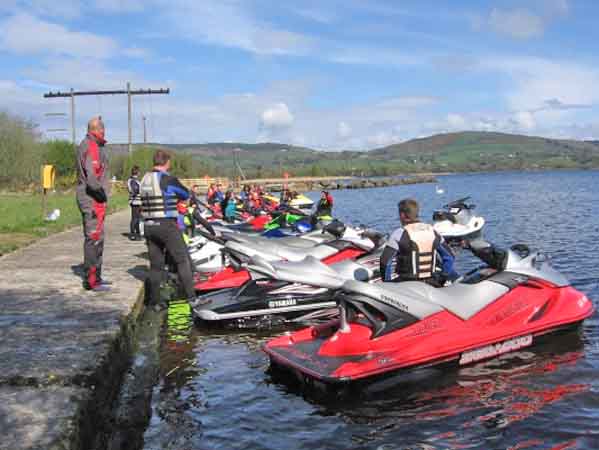Displaying items by tag: Lough Derg Jetski Club
Lough Derg Jetski Club

Lough Derg Jet Ski Club
Lough Derg Jet Ski Club has become a reality thanks to a group of Jet Ski enthusiasts who are trying to safeguard the future of their sport, for themselves and for future generations.
After hearing the possibility/reality that Personal Water Craft (PWC) and powerboats were going to be banned on our waters, we came to a conclusion that if weren’t proactive about the future of our sport, and build a better relationship with both the general public, local authorities and other users on the water the inevitable was going to happen.
A committee was formed on the 26/03/2008 and with the help from Denis Dillon, the Motorboat Development Officer of the ISA, various channels of communications were opened with Waterways Ireland, Local Councils and the Irish Sailing Authority (the national body for boating in Ireland who are actively encouraging and promoting clubs in Ireland) and other authorities.
From general feedback from local authorities we understand that they don’t actually want to ban our crafts but it is necessary for them to be able to control and manage their use - which is not possible on an individual basis. In the UK the PWC users were looking at a similar ban until they formed clubs and took responsibility for their sport and became accountable to uphold certain standards, rules and regulations for their members.
Our Aim is to secure the future of our sport by developing our relationship with the relevant authorities, to show them that by promoting safe and considerate use of PWSs within club structures, is the way forward, to benefit all involved.
Club mobile – 087 6614521
Chairperson – Alan Mooney – [email protected]
Safety Officer – Martin Tierney – [email protected] – 086 066 4137
Treasurer – Jon O'Shaughnessy – [email protected] – 086 2255 904
(The above information and image courtesy of Lough Derg Jetski Club)
Lough Derg Jetski Club, Lough Derg Jet Ski Club, Ballina, Co. Tipperary
or c/o Joe Doolan, Secretary, Forthenry, Ballina. Tel: 087 661 4521, email: [email protected]




























































